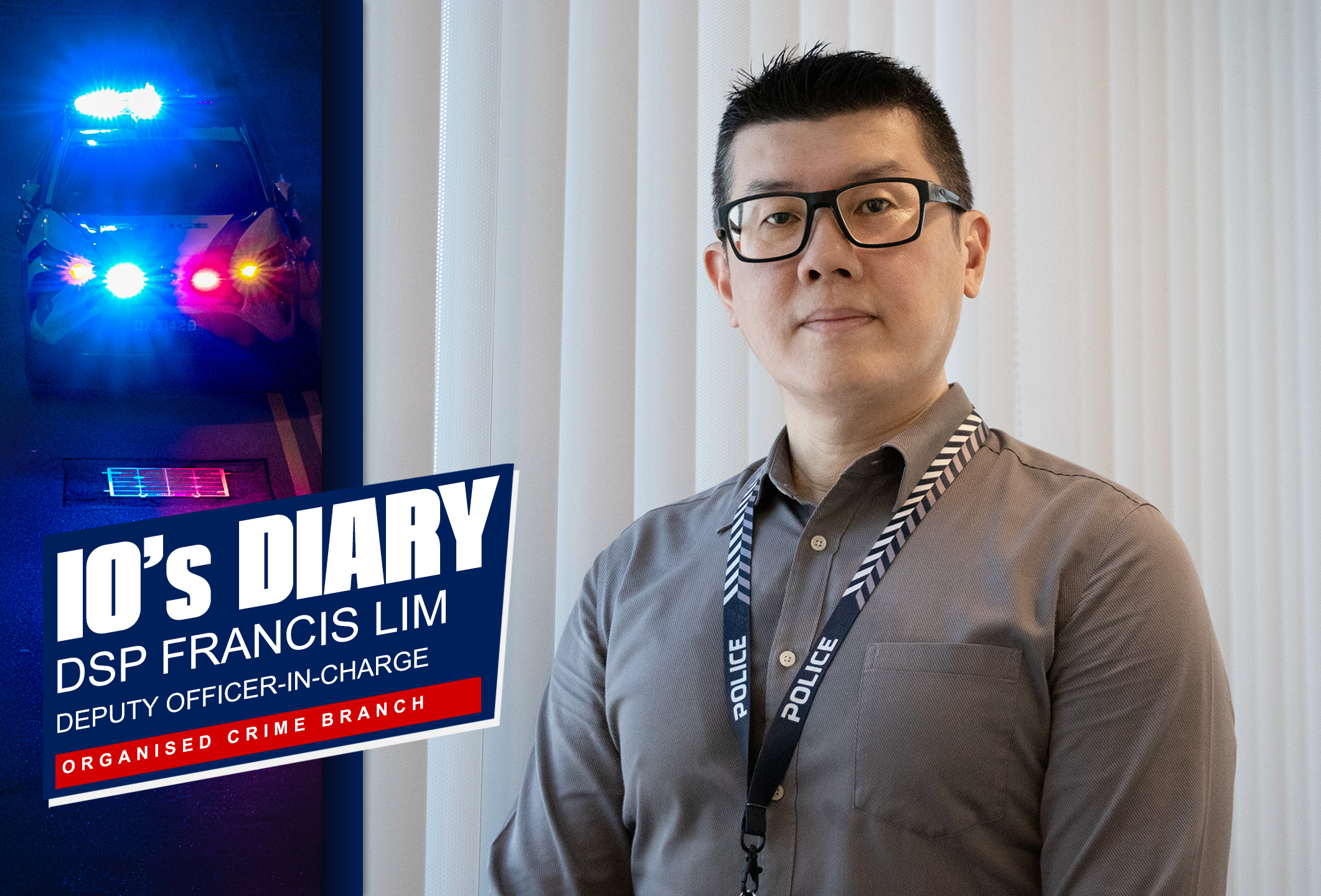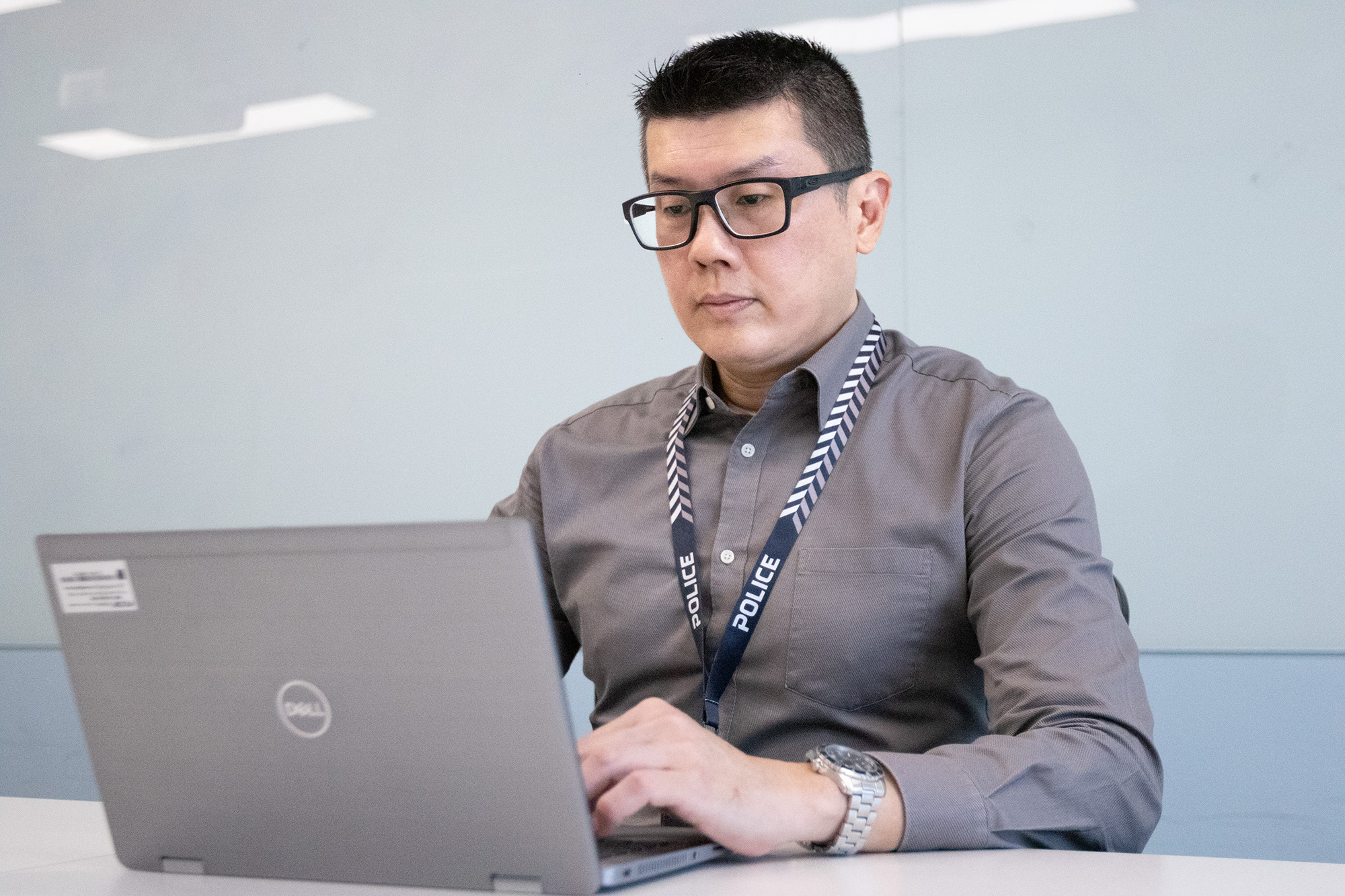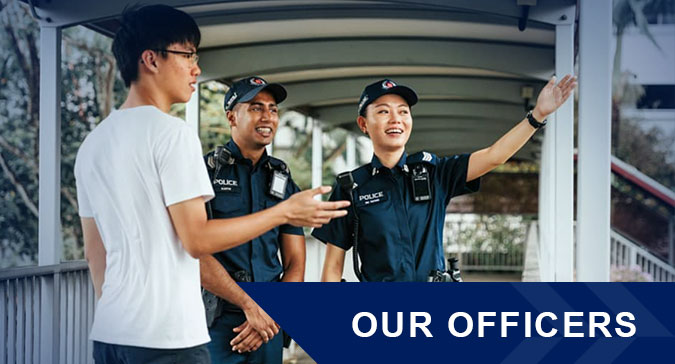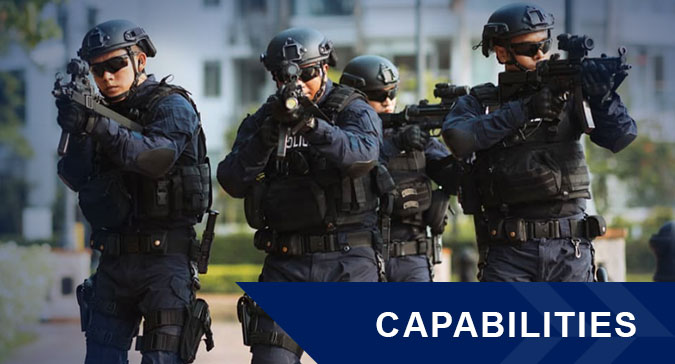From fighting organised crimes to recovering stolen luxury goods worth millions, DSP Francis Lim shares what it takes to be an IO!
By: Alethea Lee

It was a crime that few saw coming – on Christmas Day in 2008. 386 luxury watches worth millions in cash were stolen from a high-end watch boutique, leaving the owner reeling in disbelief. Officers were immediately on the case, meticulously going through the crime scene and interviewing witnesses and suspects. Deputy Superintendent of Police (DSP) Francis Lim reflects on the relentless pursuit of justice as an Investigation Officer (IO).
Can you share with us your career journey in the SPF?
I joined the Singapore Police Force (SPF) in 1993 as a patrol officer with Central Police Division. As a new officer, I had interactions with several IOs, which motivated me to become one myself in 1997. I was inspired by their sense of achievement as they shared stories of uncovering evidence, solving cases and bringing culprits to justice.
In the initial stages of my career, I focused on general investigations. However, I later chose to specialise in addressing other forms of crime, including child abuse and rioting. Eventually in 2019, I was appointed as the Deputy Officer-In-Charge of the Organised Crime Branch (OCB) in the Criminal Investigation Department.
Can you elaborate on your current role in the OCB?
My role includes overseeing our team, evaluating the effectiveness of our investigative efforts and handling both organised crime cases and other sensitive investigations. I also play a crucial role in mentoring and supporting my teammates to ensure high standards in our investigations.
What are the unique elements of working in the OCB?
Working in the OCB involves dismantling sophisticated organised crime groups. This entails more than just targeting their hierarchies, but also the structure, and the benefits derived from their criminal conduct. These cases present significant challenges due to their complex and often transnational nature. We work closely with both local and foreign enforcement agencies to investigate and enforce laws effectively.
Beyond investigating finances from criminal activities such as money laundering, we also conduct financial investigations to strip organised crime groups of their ill-gotten gains. Building cases against these groups requires a thorough understanding of their structure and operations.

What are some of the challenges you face as an IO?
Investigative work requires substantial time and effort; we often spend long hours before we can see results. Cases managed by the OCB also usually involve multiple suspects, demanding meticulous evidence review and quick decision-making during case conferences.
The pace of technological advancements presents another hurdle, with suspects now utilising encrypted messaging applications and platforms for illegal financial transactions. These challenges highlight the need for IOs to undergo continuous training and adapt to evolving crime trends.
Can you share a memorable case that you’ve investigated?
In December 2008, I spearheaded investigations into the theft of 386 luxury watches worth over $7.5 million from a watch boutique. The accused fled Singapore and went on the run. In March 2009, I led a team to Thailand and persuaded him to surrender. We were also able to recover a significant number of the stolen watches and cash.
What do you find most fulfilling about being an IO?
The most fulfilling aspect lies in our significant contribution to the criminal justice system. We hold criminals accountable and provide closure to victims of the crimes. Investigative work isn’t just a profession; it’s a deeply meaningful pursuit.
What advice would you give to those interested in pursuing a career as an IO?
Investigative work requires time, commitment, and perseverance. Don’t be discouraged by initial setbacks. Building your skills and establishing oneself in the investigation community takes time, so stay committed to continuous learning and improvement.









